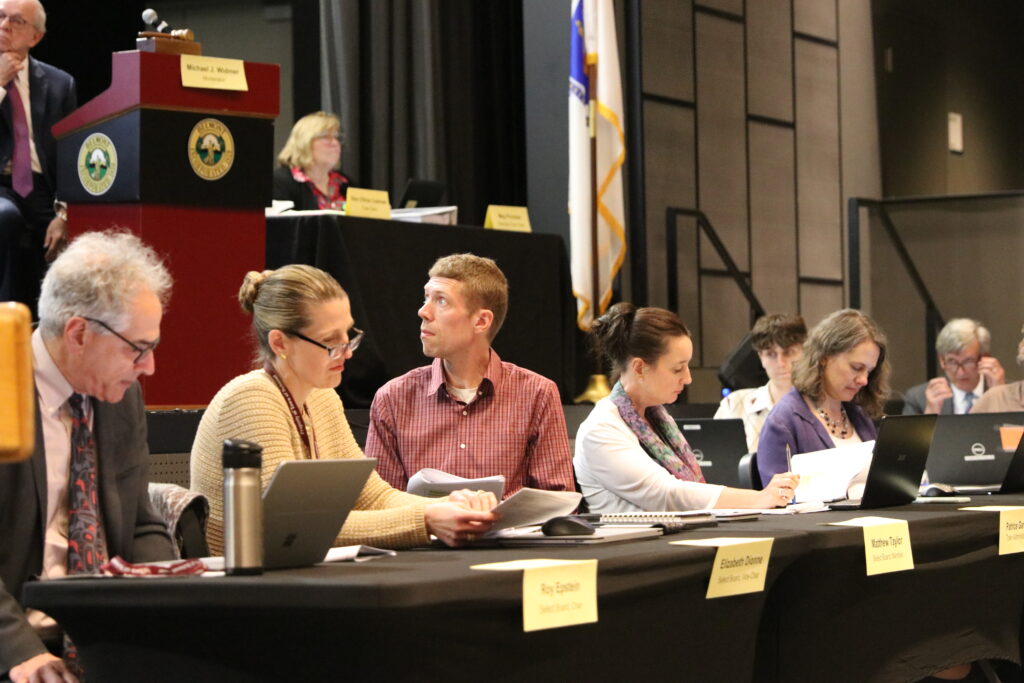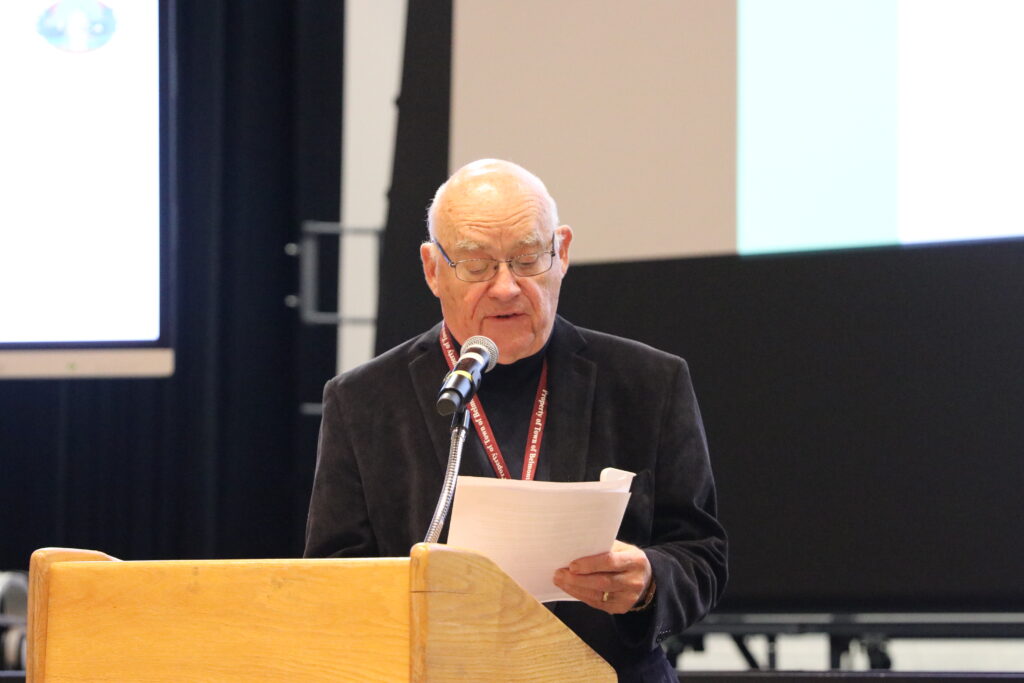Photo: A screen shot of the final vote
The annual Town Meeting came to an end on Wednesday, June 26, when members overwhelmingly approved a Special Town Meeting article to alter a quarter-century traffic management agreement between the town and McLean Hospital that was stalling the financing of a pair of developments on two parcels of land.
The 192-25-5 result easily passed the two-thirds margin required to modify the existing plan, dubbed the Traffic Management and Mitigation Plan (TMMP). Before the final vote, members defeated an amendment by abutters that sought to delay implementing the changes sought by McLean and supported by the town.
With the new agreement in place, developer Northland Development can proceed with construction of 150 units of residential housing in Zone 3—accessed from Olmsted Drive off of Pleasant Street—as well as create a building to house two schools run by the hospital while setting aside 60,000 square feet for a future research and development facility in Zone 4.
Presenting for the town, Town Engineer Glenn Clancy took a detailed dive into the history of the traffic plan and the proposed development in Zone 3. The TMMA was meant to address how the property’s owner and residents will comport with the traffic limitations identified in 1999, which included a sizeable 486-unit assistant living facility. Violating the volume ceiling would require fines and removing parking and access to the site, which financing firms reportedly pointed to as an impediment to the project’s funding.
Clancy noted the mitigation plan is no longer relevant for the latest residential plan for a smaller all-residential project, so “I think you can begin to understand why someone investing in a development like that would be troubled by something like this.” Roy Epstein, chair of the Select Board, told the meeting that a “no” vote on the article would kill the current residential plan and allow Northland to construct a project without improvements to affordable housing and other amenities the town had negotiated with Northland.
In an effort to resolve the funding impediment, the town agreed to remove the 1999 traffic limits and penalties in Zone 3 and 4 while receiving improvements to traffic signals at Olmsted and Pleasant and upgrading the signal at the intersection of McLean Drive and Mill Street through its negotiations.
The principal critics of the revamped agreement said the town was losing an important deterrent to traffic sprawl in both Zones which would impact the surrounding neighborhoods.
Jolanta Eckert of Precinct 3, who authored the amendment, said rather than bring an article before the Town Meeting, the Select Board could simply sign a formal commitment with Northland declaring that it would not enforce the current management and mitigation plan in Zone 3, which would be sufficient to allow the necessary financing to be obtained. By retaining the TMMA, the town would hold a strong hand when McLean comes before the Planning Board with its plans in Zone 4, including a 90,000 sq.ft. She said that the educational building could house up to 2,000 students.
“[While] I strongly support the Northland Zone 3 proposal and and plan to vote to ensure its success, at the same time, I don’t want the town to unilaterally cede a key negotiating chip in the upcoming negotiations with McLean concerning Zone 4,” said Vince Stanton, precinct 2.
Yet it did not appear Eckert’s amendment had garnered support as the town and officials had countered the claims via email messages prior to Wednesday’s meeting. Belmont Counsel George Hall refuted Eckert’s claim a Select Board’s promise on not impose penalities or sanctions would meet the needs of financiers who required a change in the agreement that only the Town Meeting could impose.
As for Zone 4, Clancy said the project will come before the Planning Board which will the final say on parking and traffic. In addition, several Town Meeting members pointed out some failings in Eckert’s argument pointing out that the Arlington School’s enrollment is currently 35 students, with the likelihood of a 2,000-student capacity “nonsensical.”
A majority of members voiced their support for the change in the agreement as it would keep the present Zone 3 housing plan which is seen as advantageous for Belmont. Rachel Heller, who is a member of the Housing Trust which led the Zone 3 negotiations for the town, said it would be hard to duplicate the concessions they received from Northland in 2019.
“Today, a 25-year-old traffic mitigation agreement created for a different development that was never built stands in the way of delivering on housing that will add revenue for Belmont affordability for residents downsizing options for seniors, and preserve Belmont’s ability to make development decisions in accordance with the state’s affordable housing law chapter 40B,” said Heller.
“We asked a lot from Northland,” said Heller, including 25 percent affordability throughout the development, the inclusion of rental units, no restrictions on household types purchasing or renting units as well as a commitment to all-electric dwellings.
“So I urge you to vote yes. Let’s give the green light to the homes that we need,” said Heller.
After nearly an hour of debate, the questioned was called and the amendment was soundly defeated. The vote on the article was a foregone conclusion.
The next Town Meeting will take place is mid-November as the town will seek to ratify Belmont’s MBTA Communities map.

